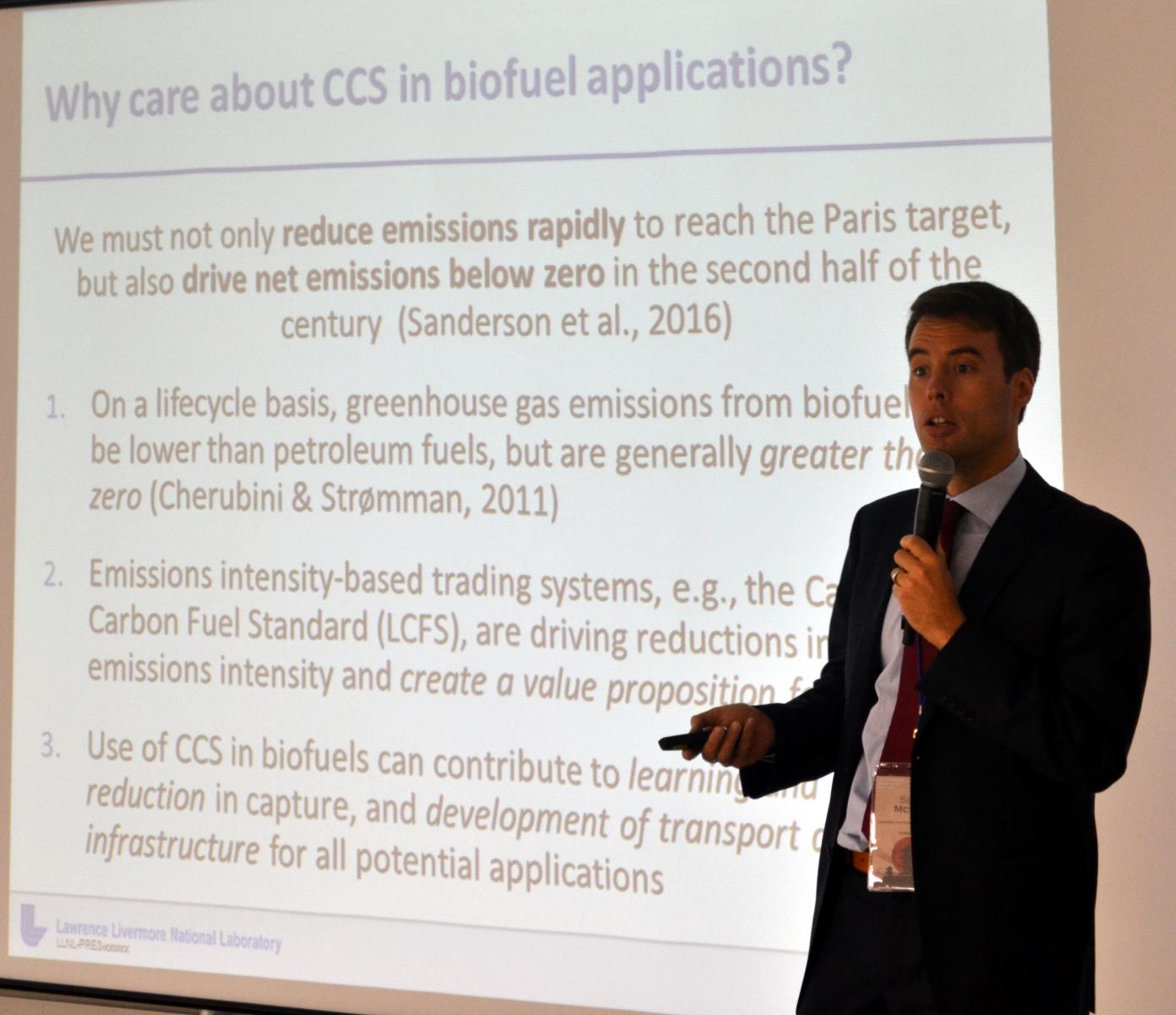Technical Group Chair: Norway (term ends in 2021)
Technical Group Vice-Chairs: Australia, Canada, and Japan (term ends in 2021)
The Carbon Sequestration Leadership Forum (CSLF) Technical Group is composed of world-class experts in the areas of carbon dioxide (CO2) capture, CO2 storage, CO2 enhanced oil recovery (CO2-EOR), and other forms of CO2 utilization. It has been active, via task forces and working groups, in many areas related to carbon capture and storage (CCS).

October 2016.
The Technical Group is responsible for carrying out the following functions of the CSLF:
- Identify key technical, economic, environmental, and other issues related to the achievement of improved technological capacity
- Identify potential areas of multilateral collaboration on carbon capture, transport, and storage technologies
- Foster collaborative research, development, and demonstration projects reflecting members’ priorities
- Assess regularly the progress of collaborative projects and make recommendations to the Policy Group on the direction of such projects
- Establish and regularly assess an inventory of the potential areas of needed research
- Facilitate technical collaboration with all sectors of the international research community, academia, industry, government, and non-governmental organizations
- Consider approaches to address issues associated with the above functions
The Technical Group will also carry out the following:
- Recommend collaborative projects to the Policy Group
- Set up and keep procedures to review the progress of collaborative projects
- Follow the instructions and guidance of the Policy Group on required tasks and initiatives to be undertaken
As part of its mission under the CSLF Charter to “identify promising directions for research,” the CSLF Technical Group has produced the CSLF Technology Roadmap to describe possible routes to future CO2 capture, transport, and storage needs. The Roadmap indicates areas in which the CSLF can add value through international collaborative effort.
CSLF Technical Group Activities
Non-EHR CO2 Utilization Options
Task Force formed in 2018
Hub and Infrastructure Task Force
Task Force formed in 2018 and completed initial “Phase 0” activities that reviewed existing reports and presentations. Annual updates to be presented at Technical Group mid-year meetings. Occasionally, there will also be workshops on this topic.
Reservoir Management
This is a “passive” Task Force, formed in 2019, which will keep track of ongoing and new storage management activities and occasionally provide updates at Technical Group meetings.
Project Interaction and Review Team
The CSLF Project Interaction and Review Team (PIRT) has the main responsibility of engaging sponsors of CCS projects. Learnings from these projects are key elements for knowledge sharing, which will ultimately assist in the acceleration of the deployment of CCS technologies. PIRT responsibilities include the following:
- Assessing projects proposed for recognition by the CSLF and making recommendations to the Technical Group on whether a project should be accepted for recognition by the CSLF
- Reviewing the CSLF project portfolio; identifying synergies, complementarities, and gaps; and providing feedback to the Technical Group
- Providing input for further revisions of the CSLF Technology Roadmap and responding to the recommended priority actions identified in the roadmap
- Identifying where it would be appropriate to have CSLF-recognized projects
- Fostering enhanced international collaboration for CSLF projects
- Ensuring a framework for periodically reporting to the Technical Group on the progress made on CSLF projects
- Organizing periodic events to facilitate the exchange of experience and views on issues of common interest among CSLF projects and providing feedback to the CSLF
- Managing technical knowledge-sharing activities with other organizations and with CSLF-recognized projects
The PIRT Terms of Reference document provides guidelines for PIRT functions, membership, operations, and procedures.
Allied Organizations
The Technical Group allows selected organizations that are focused on aspects of carbon capture, utilization, and storage (CCUS) to participate in its meetings. These “Allied Organizations” are provided seats at the table during Technical Group meetings and give update presentations about their activities and future plans. These presentations serve to assist the Technical Group to more effectively plan its own future activities. Criteria for being an Allied Organization are:
- The organization must have a multidisciplinary focus on CCUS and be predominantly multinational in its membership. Its activities should be of a technical nature and may include, but are not limited to, the following: identifying knowledge gaps and the formulation of new research targets, fostering interaction and exchange of information and views between CCUS stakeholders, and performing tasks and activities that result in open dissemination of its work.
- The organization must be willing to be represented at Technical Group meetings and to participate in Technical Group activities such as task forces, CSLF Technology Roadmap (TRM), capacity-building, workshops, and other collaborative activities.
- The organization must allow the Technical Group the opportunity to be represented at any of the organization’s executive committee meetings and/or allow the Technical Group the opportunity to make suggestions about the organization’s proposed future activities.
The Technical Group’s Executive Committee, at its discretion, will make invitations on a case-by-case basis to organizations that meet these criteria and that have shown a strong interest in the Technical Group and its activities. Such invitations will be provisional pending attendance by representatives of the organizations for the next two Technical Group meetings, after which the alliance becomes ongoing for as long as the organizations continue to meet these criteria.
